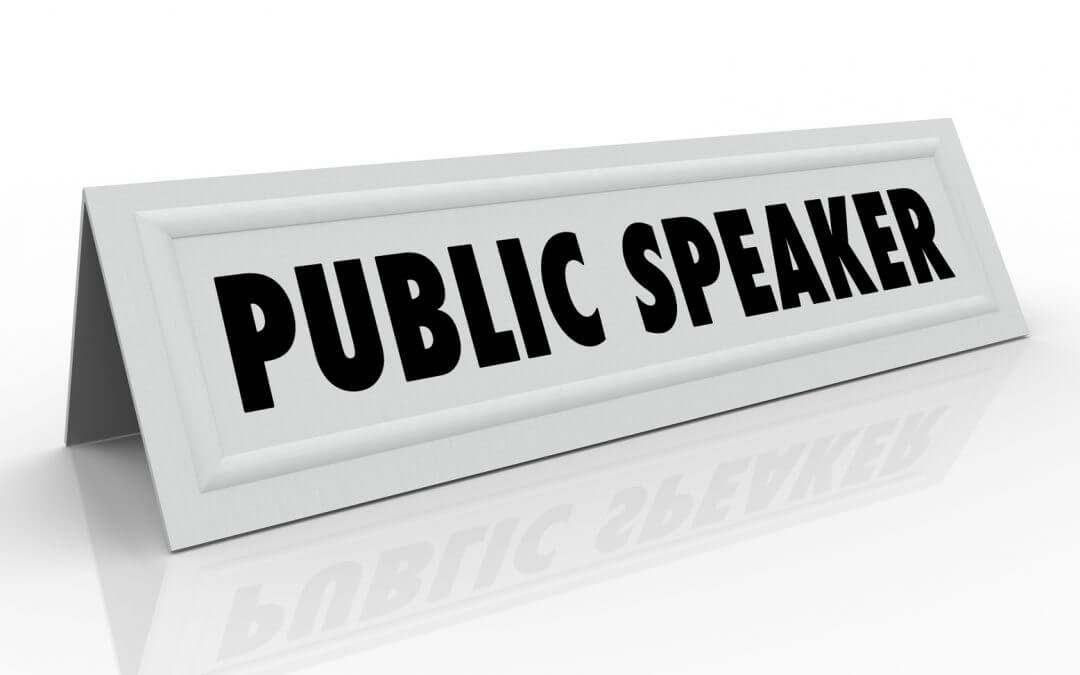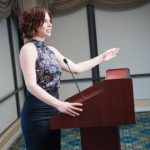Public speakers have many names. I was recently invited to speak at a conference. Like I normally do, I had a discovery call with the client to understand the audience and uncover connect points and common language, and to make sure that we were creating outcomes and objectives that work for everyone. I rarely – if ever – just regurgitate a prior speech or program.
One discrepancy was uncovered very quickly, and I found it extremely hard to overcome. I’ve created almost all my content and structured my business around the phrase “anyone can learn to be an effective communicator.” But since most people don’t call themselves communicators, I’ve settled on saying “speaker”. I train speakers. I’m a public speaking coach. Everyone speaks. Our speaking habits are what we try to change. We want our speaking to have impact. Speak — It’s the word I use.
Except… this client used a different word. They were very partial and beholden to the term Facilitator. I was instructed to make sure I used “Facilitator” in all my stories and examples. It was harder than I imagined it would be.
My temptation was to say, “It’s no big deal.” One man’s speaker is another man’s facilitator. Teacher. Leader. Orator. Coach. Emcee. Whatever.
I was (and am) very dogmatically against the word presenter. I think the subtle connotation of presenter makes people think it’s something you turn on and off. And in the business world, a “presentation” is almost always a synonym for “the content we have put in PowerPoint” – again, something I vehemently fight against – PowerPoint is NOT the presentation. You are. It’s merely a visual aid (and NOT a handout, but that’s a topic for another newsletter). We teach COMMUNICATION SKILLS. Not presentation skills. Because they can be used in ANY environment. Presentation skills don’t usually help phone conversations, meetings, dinner dates, or answering questions. The skills we teach do all of that. And more. But I digress.
Here I am faced with the real struggle to change my words to use facilitator instead of some of the words I’d be more inclined (and may even think are better) to use. Ultimately, my course of action was made easy by the principle that answers any question in communication: Rule #1. No matter what I think. No matter how right I am. This conference was not about me. I set about practicing to use “facilitator” instead of “speaker”.
It got me thinking. Is there a difference? Does a facilitator do something fundamentally different from a teacher? Or motivational speaker? (Or presenter? Accck!) Or are they just titles that don’t matter except to those who study etymology (the study of words) for a hobby?
When it comes to the skills and principles, I think I’m willing to die with the belief that skills are transferable to all these situations. And Rule #1 is the preeminent, driving force under which all other guidelines must bow. But there is a difference. The difference is in the objective of the event.
With a willingness to defer to a group/culture because their words have a different connotation, here’s how I see the differences:
7 Types of Public Speakers
- Speaker – the primary purpose is to address a group. Style can vary wildly, and an adjective before it (keynote, motivational, interactive) can change the experience of the audience.
But the net outcome public speakers is that they speak for some allotment of time. I would say success is measured in the ability of the audience to repeat some or all of the core message the speaker gave. Certainly connection (engagement) is a key skill to help that goal, having good organization makes it easier to follow, and expert skill cannot be overlooked in making this happen. But the desired outcome is a transfer of message.
- Facilitator – synonyms include organizer, implementer, enabler, and helper. A facilitator makes a system work smoothly. Whether it’s a workshop on how to make a marriage work or team retreat uncovering the mission statement, a facilitator gets the group to discover the outcome (which they may or may not have a prescribed answer to a priori).
- Moderator – the implication is that there is some conflict that he/she must navigate in order to come to some logical and fair conclusion. Like a judge, we will enforce some protocol or rules to make sure that everyone gets a voice.
- Entertainer – a few years back I ran across a definition of entertain that I love and applies to all my audiences (even those stodgy and very-correct engineers). EVERYONE should strive to do this in every situation: (v.) to hold the attention of pleasantly or agreeably; divert; amuse. But the connotation of entertainer means that the audience enjoys themselves. I don’t much see that a comedy routine differs from a contract pitch with that definition.
- Emcee (or perhaps Chair) – an emcee’s job is to keep an audience attentive and navigate a multi-faceted program that includes multiple people (who might be speaking, facilitating, or entertaining). Maybe tasked only with the segues and setups, an emcee keeps the show rolling (maybe with humor!).
- Teacher – we all had them. And for some reason we think that the concept of teaching must be associated with a formal program or course of study. But a teacher’s job is to impart knowledge and insight that can be applied when it is needed (when I taught calculus, I wanted my students to use it – correctly — when they needed it. That was the only acceptable outcome). But by that definition, HR generalists, group managers, programmers, and conference speakers are all teachers.
- Coach – this may be my favorite title (working title of my next book: “Call Me Coach”). But a coach’s job “is to help an individual or a team get to a level that they cannot get to by themselves” (per a fantastic program I’m fortunate to represent: 3D Coaching). But again, that could apply to a wide range of people and situations beyond an athletic field or contractual agreement.
The outcomes may be (subtly) different. But our core model of communication excellence applies to ALL of these situations and public speakers. The skills are agnostic – they don’t care how or when they’re implemented. Someone who has the skill of storytelling (don’t forget to sign up for our next storytelling workshop) will be a better dinner guest, better keynote speaker, and a better emcee. Stories don’t much care where they are used. Audiences just know they make it easier to listen to and more applicable when public speakers use them.
Two principles to take away from this discourse:
- Be careful about the language you use. Subtle word differences in a culture can have a drastic impact on your audience’s takeaways.
- Regardless of what you call yourself, when you open your mouth to speak, you will be more effective if you use great delivery skills, have your message organized and clear, and are entertaining and focused on how your audience processes and wants the information. Those are timeless skills anyone – even facilitators — can develop!
Communication matters. What are you saying?
Want more speaking tips? Check out our Free Resources page.
We can also help you with your speech with our Workshops or Personal Coaching.
This article was published in the October edition of our monthly speaking tips email newsletter, Communication Matters. Have speaking tips like these delivered straight to your inbox every month. Sign up today to receive our newsletter and receive our FREE eBook, “Twelve Tips that will Save You from Making a Bad Presentation.” You can unsubscribe at any time.


 But the net outcome public speakers is that they speak for some allotment of time. I would say success is measured in the ability of the audience to repeat some or all of the core message the speaker gave. Certainly connection (engagement) is a key skill to help that goal, having good organization makes it easier to follow, and expert skill cannot be overlooked in making this happen. But the desired outcome is a transfer of message.
But the net outcome public speakers is that they speak for some allotment of time. I would say success is measured in the ability of the audience to repeat some or all of the core message the speaker gave. Certainly connection (engagement) is a key skill to help that goal, having good organization makes it easier to follow, and expert skill cannot be overlooked in making this happen. But the desired outcome is a transfer of message.
